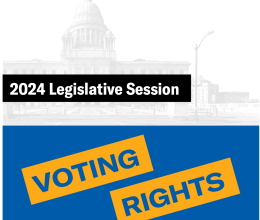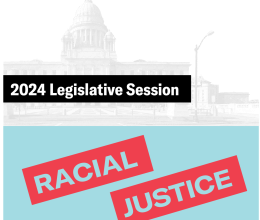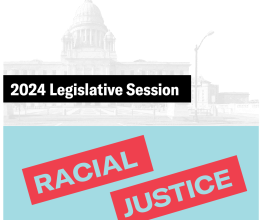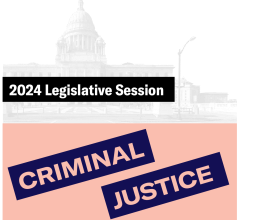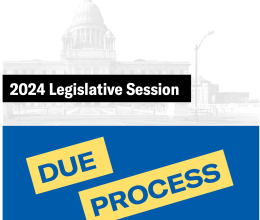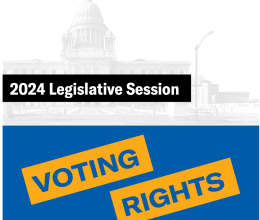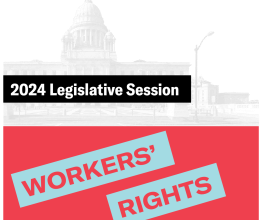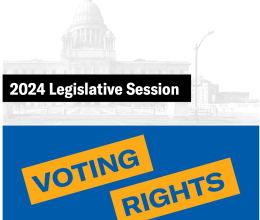The Rhode Island ACLU, along with nine other organizations, submitted written testimony today to the Secretary of State’s Office, urging significant revisions to proposed rules dealing with procedures for the issuance of voter ID cards to people who do not have the requisite photo identification required to vote on Election Day under a new state law. The testimony pointed out that the proposed rules do not adequately address the specific needs of some of the groups that will be most in need of voter ID cards, including the elderly, people with disabilities, the poor and the transient.
In June, over the objections of dozens of civil rights and community groups, Governor Lincoln Chafee signed into law a bill that will require voters, beginning in 2014, to present specified forms of photo identification in order to vote. Today’s hearing was the result of a provision in the law requiring the Secretary of State to make available at no charge special voter ID cards for individuals who do not have any of the specific forms of identification, like driver’s licenses, listed in the statute.
The proposed rules contain two lists of acceptable documents that can be used to obtain a voter ID card, eight needing to be “current and valid” and another nineteen that must include a person’s address and “dated since the date of the last election.” The testimony asserted that almost all of the eight documents contained in the first list – which includes health club ID cards, insurance cards, and commercial establishment ID cards – are “much more likely to be held by people who are not poor, elderly, or disabled, thus defeating the purpose of trying to promote easy access to voter ID.” Rather, those documents “are precisely the type of cards that people already possessing acceptable photo ID are likely to have.”
As for the second list, the testimony pointed out:
Requiring the other nineteen acceptable documents to include a current date and address will severely limit the availability of these documents for people needing to qualify for a voter card. Public housing cards, student ID, insurance and drug discount cards, RIPTA bus passes, and ID documents by government homeless shelters, for example, are unlikely to have a current date or address or both. Indeed, the mere fact that an address is required largely eliminates their availability for anybody who is homeless.
The testimony also claimed that some of the most crucial issues surrounding the proposed voter ID regulations were far too vague. For example, although the Secretary of State will have a “mobile voter ID unit” available to go across the state to provide cards to residents, the regulations provide no details about the unit’s availability or accessibility. The rules also do not contain any details about how the Secretary of State plans to educate voters about the new photo ID requirement. The testimony noted that “many voters will be confused by implementation of the new law, and a vibrant and coherent public education plan is critical to avoid misunderstandings on Election Day.”
The other organizations signing on to the testimony were Common Cause Rhode Island, National Association of Social Workers/Rhode Island Chapter, Ocean State Action, The Poverty Institute, Rhode Island Council of Community Mental Health Organizations, Rhode Island Coalition for the Homeless, AARP Rhode Island, League of Women Voters of Rhode Island, and the Rhode Island Disability Law Center. In the meantime, the ACLU is awaiting action from the state Board of Elections, which also must adopt implementing regulations but has thus far taken no steps to do so.

